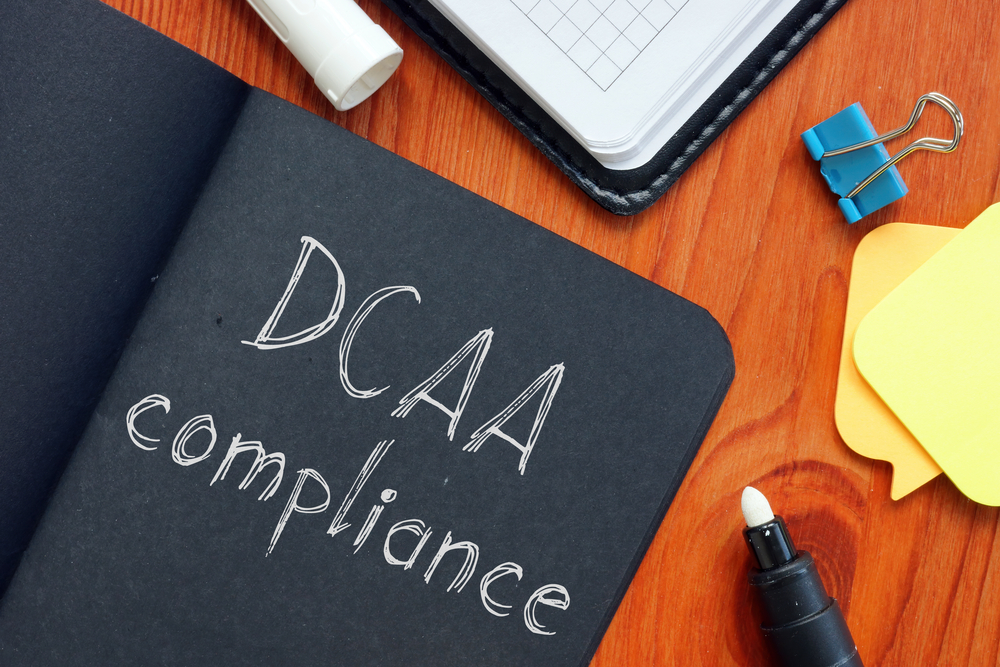As a government contractor, the audit process can be daunting and confusing; unfortunately, is also an inevitability, and it’s imperative that you’re prepared to face these audits on a regular basis. Understanding the audit process and preparing for it can help your business remain compliant and easily pass those DCAA audits that come from working on government contracts. Keep reading to learn more about how to navigate the audit process as a government contractor.
What Is an Audit?
An audit is a review of a company’s financial records and accounting procedures to determine if the company is in compliance with Generally Accepted Accounting Principles (GAAP) or other regulations, such as the Federal Acquisition Regulation (FAR). An audit can be conducted by an internal or external auditor, but in the case of government contracts, it is typically conducted by the Defense Contract Audit Agency (DCAA).
Preparing for an Audit
The key to a successful audit is preparation. Before an audit, you should conduct a thorough review of your accounting practices and financial records to ensure they are in compliance with applicable regulations. This includes reviewing your indirect rates, timekeeping practices, and allocation of costs.
You should also ensure that your financial records are accurate and up to date. This includes reconciling all accounts, ensuring that all transactions are properly documented, and verifying that all costs are allowable, allocable, and reasonable.
In addition to reviewing your financial records, you should also review your contract documents to ensure that you are in compliance with all contract requirements. This includes reviewing the statement of work, deliverables, and any other requirements outlined in the contract.
Finally, you should ensure that all employees are trained on government contracting requirements and that they understand their roles and responsibilities in the audit process. For any business, remaining compliant with DCAA requirements is truly a team effort. You need every employee recording hours, PTO, expenses, and other important records accurately at all times so that you can approach every DCAA audit with confidence.
During an Audit
During an audit, the auditor will review your financial records and accounting practices to ensure that they are in compliance with applicable regulations. The auditor will typically start by reviewing your indirect rates, timekeeping practices, and allocation of costs.
The auditor will also review your contract documents to ensure that you are in compliance with all contract requirements, which is why we recommended you do the same in the section above. As you likely know, different contracts can have different stipulations and requirements, particularly in regards to allowable and unallowable costs. So, it’s important that you’re adjusting your bookkeeping as needed to remain compliant with the terms of each individual contract.
As the audit progresses, the auditor may identify areas where your accounting practices do not meet applicable regulations. It is important to work with the auditor to address these issues and to implement corrective action plans to ensure that your accounting practices are in compliance.
It is also important to maintain open lines of communication with the auditor throughout the audit process. This includes responding to requests for information in a timely manner and providing the auditor with access to all necessary documentation.
After an Audit
After the audit is complete, the auditor will provide a report detailing their findings. If the auditor identifies areas where your accounting practices do not meet applicable regulations, you will be required to implement corrective action plans to address these issues.
It is important to review the audit report carefully and to work with your accounting team to implement any necessary corrective action plans. Once the corrective action plans have been implemented, you should conduct a follow-up review to ensure that your accounting practices are now in compliance with applicable regulations.
If the audit report identifies any potential issues, it is important to work with your accounting team and legal counsel to address these issues before they become more serious problems.
Get Help with DCAA-Compliant Accounting
Navigating the audit process as a government contractor can be challenging, but with proper preparation and communication, it can be a smooth process. By ensuring that your accounting practices are in compliance with applicable regulations, reviewing your contract documents, and maintaining open lines of communication with the auditor, you can help ensure a successful audit.
If you need help with DCAA-compliant accounting for government contractors, contact Peter Witts, CPA. We specialize in working with government contractors and can help ensure that your accounting practices are in compliance with applicable regulations.

